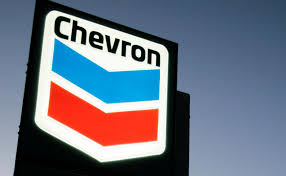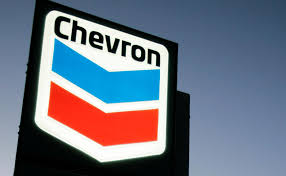
The United States based energy firm Chevron Corp is now focusing on its natural gas future tied to the Middle East which is a volatile and divided region which has posed any challenges to energy companies. Previously the company was focused on shale production in the US.
An assumption that the Middle East is entering an era of reconciliation which will make the region an ideal one for tapping natural gas with forecast of demand for the cheaper and cleaner fuel surpassing conventional oil is the basis of the new strategy of Chevron under its CEO Michael Wirth.
Under the new strategy, Chevron plans to strike deals for new gas in Egypt, Israel and Qatar while reducing spending in exploration of shale in the US.
At the core of the new plan in the acquisition of US-based Noble Energy, which has a 40 per cent stake in the Leviathan gas field in the Mediterranean Sea, off the coast of Israel, in a deal earlier this month worth $11.8 billion.
“Five years ago the Eastern Med wasn’t viewed as endowed from a resource standpoint as I think most people would say today. That’s a fundamental shift,” Wirth said in an interview to the media.
“There’s not a lot of capital investment required in the near term,” he said. “At a time when cash flow matters, that’s a very appealing attribute.”
This deal directly creates a partnership with Israel which is further supported by narrowing down of the some of the historical rifts in the region like the establishment of formal diplomatic relationship between Israel and the United Arab Emirates which happened last month in a deal between the two countries.
Middle Eastern commercial and diplomatic relations “are becoming more codified and stronger, that’s a trend that we think augurs well for the region,” Wirth said.
A courtesy discussion with officials in Saudi Arabia, a key partner in a number of Chevron oil projects, was also made about the Nobel deal by Chevron. This was also a notable move by the company because of the historically strained relations between Saudi Arabia and Israel, said reports quoting a senior official of the company.
However, there still exits a number of challenges for business in the region because of political and security risks.
Civil war has torn Syria and Yemen and the consequences of the conflicts are uncertain for a wider region in which Saudi Arabia and Iran are engaged in a proxy battle.
But efforts of expanding across the region are being continued by Chevron despite such risks. It was just this month that the company surpassed rival ExxonMobil to become the largest US oil company in terms of market value.
“The reality is you need gas in tandem with renewables,” said Christopher Kalnin, CEO of Banpu Kalnin Ventures, which invests in U.S. shale gas. Asia in particular will remain dependent on imported gas, he said, because it complements solar and wind.
(Source:www.economictimes.com)
An assumption that the Middle East is entering an era of reconciliation which will make the region an ideal one for tapping natural gas with forecast of demand for the cheaper and cleaner fuel surpassing conventional oil is the basis of the new strategy of Chevron under its CEO Michael Wirth.
Under the new strategy, Chevron plans to strike deals for new gas in Egypt, Israel and Qatar while reducing spending in exploration of shale in the US.
At the core of the new plan in the acquisition of US-based Noble Energy, which has a 40 per cent stake in the Leviathan gas field in the Mediterranean Sea, off the coast of Israel, in a deal earlier this month worth $11.8 billion.
“Five years ago the Eastern Med wasn’t viewed as endowed from a resource standpoint as I think most people would say today. That’s a fundamental shift,” Wirth said in an interview to the media.
“There’s not a lot of capital investment required in the near term,” he said. “At a time when cash flow matters, that’s a very appealing attribute.”
This deal directly creates a partnership with Israel which is further supported by narrowing down of the some of the historical rifts in the region like the establishment of formal diplomatic relationship between Israel and the United Arab Emirates which happened last month in a deal between the two countries.
Middle Eastern commercial and diplomatic relations “are becoming more codified and stronger, that’s a trend that we think augurs well for the region,” Wirth said.
A courtesy discussion with officials in Saudi Arabia, a key partner in a number of Chevron oil projects, was also made about the Nobel deal by Chevron. This was also a notable move by the company because of the historically strained relations between Saudi Arabia and Israel, said reports quoting a senior official of the company.
However, there still exits a number of challenges for business in the region because of political and security risks.
Civil war has torn Syria and Yemen and the consequences of the conflicts are uncertain for a wider region in which Saudi Arabia and Iran are engaged in a proxy battle.
But efforts of expanding across the region are being continued by Chevron despite such risks. It was just this month that the company surpassed rival ExxonMobil to become the largest US oil company in terms of market value.
“The reality is you need gas in tandem with renewables,” said Christopher Kalnin, CEO of Banpu Kalnin Ventures, which invests in U.S. shale gas. Asia in particular will remain dependent on imported gas, he said, because it complements solar and wind.
(Source:www.economictimes.com)














